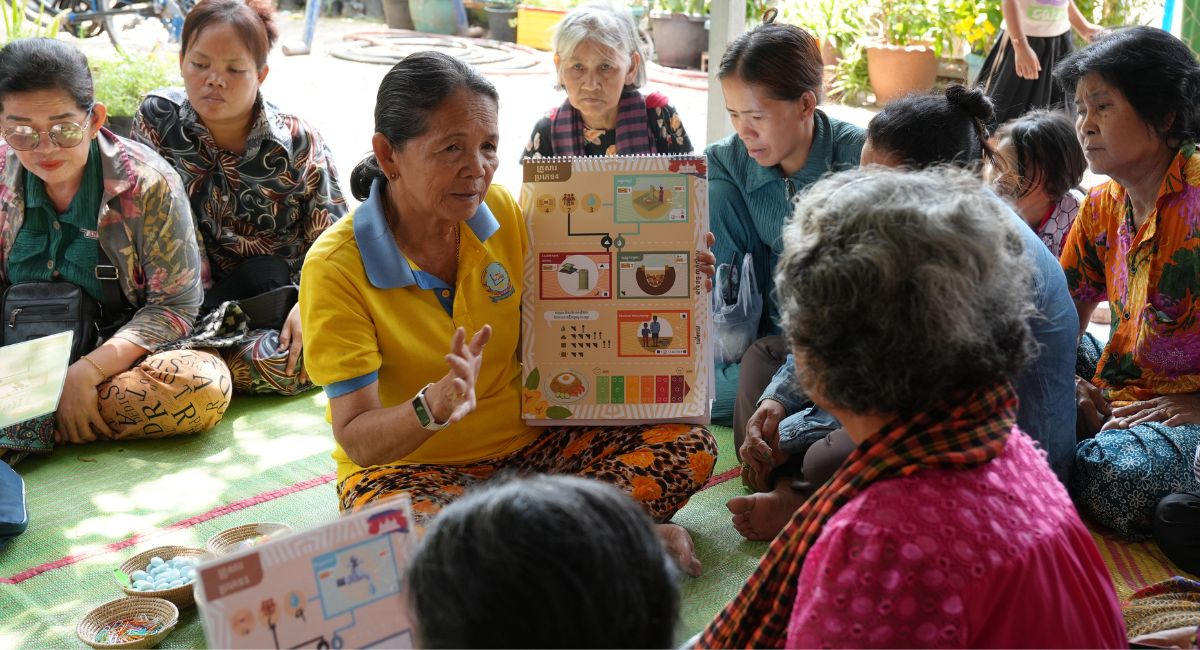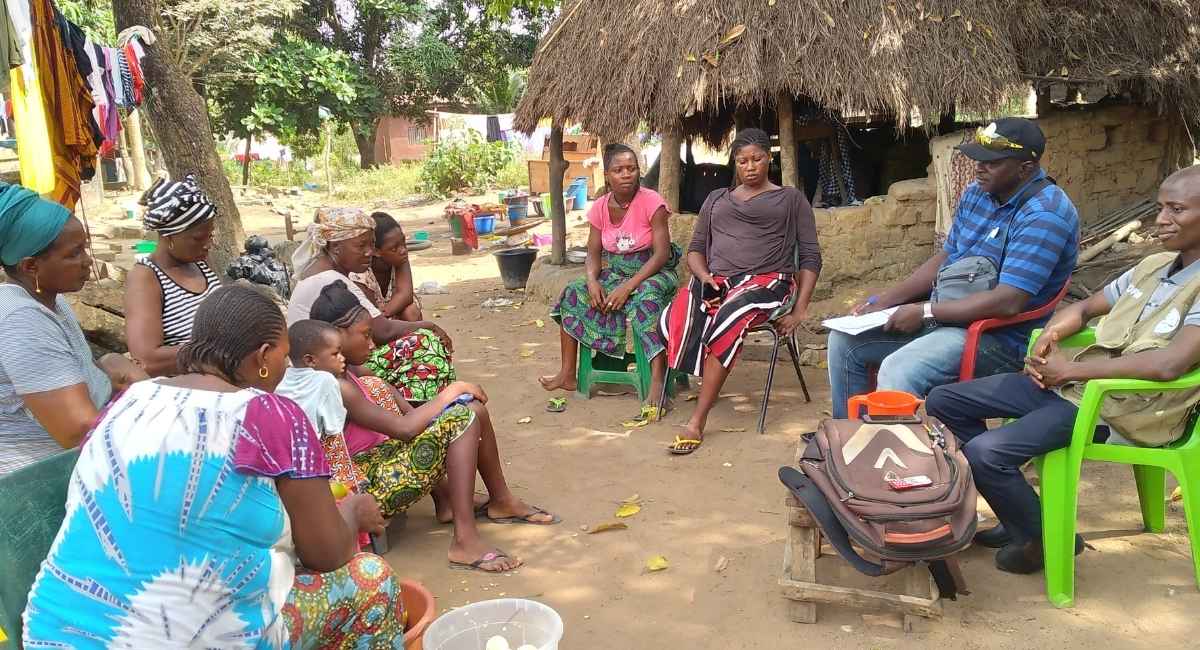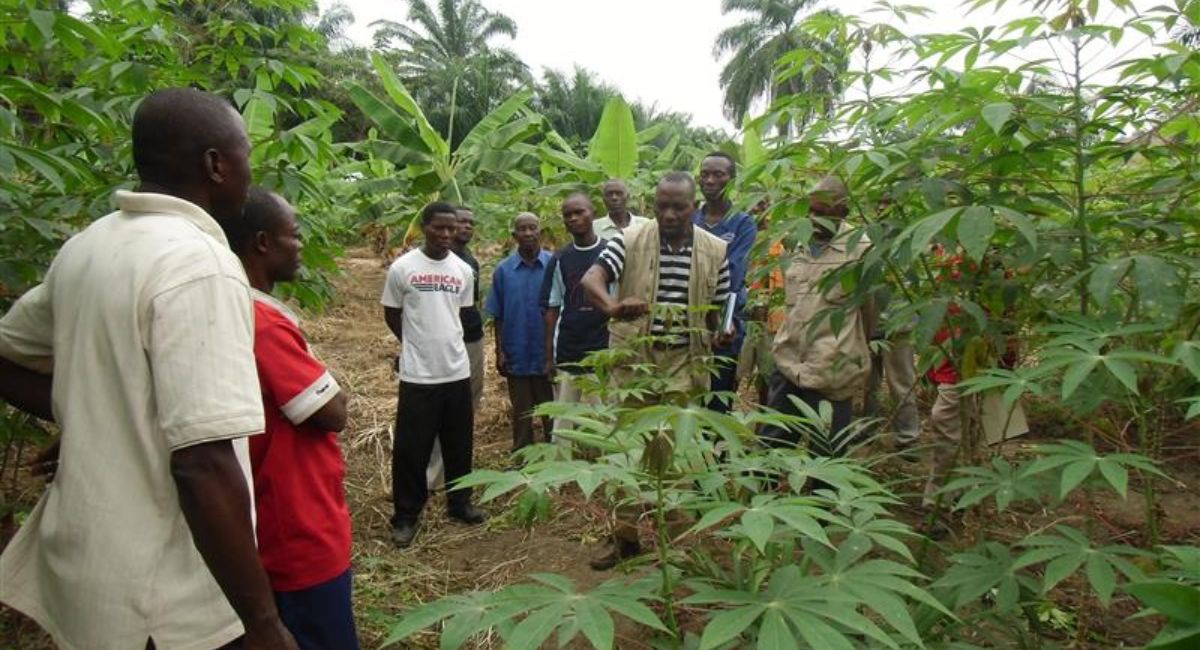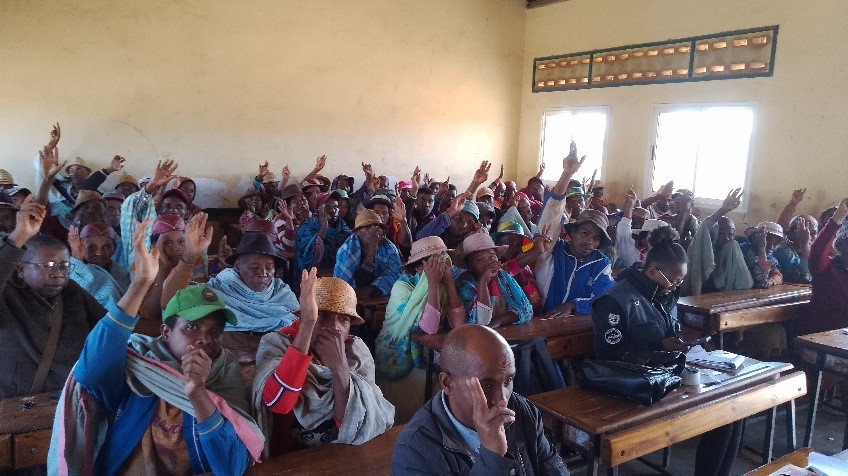On March 14, stakeholders gathered in Phnom Penh for the closing workshop of the SAMART project, marking the culmination of an initiative that has made significant strides in improving sanitation in Phnom Penh’s Andoung community. This event provided an opportunity to reflect on the project’s achievements, share learnings, and explore synergies with other initiatives focused on sanitation and Nature-Based Solutions. With around 30 participants—including representatives from Phnom Penh Capital Hall, local Sangkat authorities, development partners (PE&D, Monash University, RuCAS program, BORDA), and engaged community members—the workshop fostered valuable discussions on the future of urban sanitation in Cambodia.
The SAMART Project: improving public health in vulnerable neighbourhoods
Andoung community, a dense, low-income neighbourhood in northern Phnom Penh, has faced persistent sanitation challenges. Originally a relocation site following mall constructions two decades ago, the community has struggled with a highwater table and limited wastewater infrastructure. Currently, the area lies outside the coverage of the city’s sewerage system, leading to unsafe sanitation practices. With almost 600 households cramped in the area, 11% discharge blackwater directly into the drainage system without pre-treatment. 45% of households rely on unsealed pit latrines, causing contamination of the highwater table, while 38% use sealed pit latrines, but these are rarely desludged and overflow into drains. Additionally, the drainage system discharges directly into an open canal surrounding the community, increasing the risk of direct human contact with untreated wastewater.
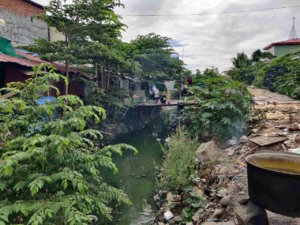
Polluted communal canal where untreated wastewater are discharged causing health and environmental concerns
Recognising these issues, the SAMART project was launched with the goal of improving public health in four vulnerable neighbourhoods in Phnom Penh by strengthening the faecal sludge management sector. Funded by Ville de Paris, Fondation pour le Logement des Défavorisés, and AEPK, the project led by GRET implemented a range of activities, including the development of innovative sanitation systems to treat household blackwater, capacity-building programmes for Emptying Truck Operators (ETOs) and local authorities, and awareness-raising campaigns within the community to promote behaviour change and safe sanitation practices.

Key Successes: A Positive Shift in Sanitation Practices
Over the course of the project, significant progress has been made:
- Piloting innovative sanitation solutions: Several treatment systems have been installed and are showing promising results in reducing environmental contamination.
- Behaviour change in the community: A notable shift in awareness has been observed, with residents increasingly recognising the link between sanitation, health, and environmental quality.
- Infrastructure improvements: 45 household sanitation systems have been installed, significantly reducing the pollution load before wastewater enters the environment.
- Strengthening local capacity: Five ETOs have been trained and equipped, enhancing their ability to provide better desludging services.
- Engagement of local authorities: Decision-makers at both the municipal and Sangkat levels are now more aware of the importance of sustainable sanitation solutions.
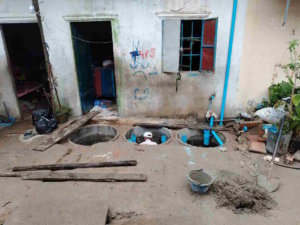
Workers installing treatment system for Andoung households to filter wastewater
Deputy Leader of the Andoung 1 Community, Mrs. Navy Im spoke of her improved understanding of the situation “I used to think that dumping of waste and population growth were the only reasons why the community’s drainage system clogs up and wastewater overflows during the rainy season, which could affect the livelihood and health of my community. I now realise that poor management of faecal sludge is also a significant cause of these issues! ”
Looking Ahead: A Broader Vision for Sustainable Urban Development
While SAMART has laid the groundwork for improved sanitation, there is still much to be done. Future initiatives aim to continue to address pollution reduction by integrating greywater management and complementing the blackwater treatment installed. It also intends to integrate urban planning and climate resilience measures, tackling flood control and enhancing public spaces. Lastly, it should strengthen community engagement, fostering a collective approach to sustainable sanitation management.
Next Steps: The Chamreun Project
Building on SAMART’s achievements, a feasibility study is planned in the coming months for Chamreun, a new initiative that will take a more holistic approach to urban sanitation, climate change adaptation, and urban planning. This next phase will explore ways to create resilient, liveable urban spaces while continuing to improve sanitation services, integrating nature-based solutions.
As the SAMART project concludes, it should be noted that the invaluable support of the project funders -Ville de Paris, Fondation pour le Logement des Défavorisés, and AEPK – has played a crucial role in making Phnom Penh’s sanitation landscape more sustainable and inclusive.
- Banner photo : Navy Im, deputy leader of the community, explaining the WasteWag game to members of the village to raise awareness on community sanitation.

